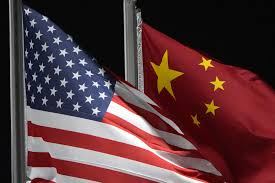The total value of Indian exports affected by these tariffs amounts to $11 billion, with the net financial impact at the highest tariff rate reaching $2.2 billion.
NEW DELHI: Tensions between the United States and India have heightened following the U.S. government’s decision to significantly increase tariffs on Indian exports. After his re-election as U.S. President, Donald Trump announced an additional 27% tariff on Indian goods. This measure is expected to cause an annual financial setback of $7 billion for India. The total value of Indian exports affected by these tariffs amounts to $11 billion, with the net financial impact at the highest tariff rate reaching $2.2 billion. Under the newly imposed tariffs, Indian exports to the US, including steel, aluminium, and automobile-related products, will be subject to a 27% tariff. However, pharmaceuticals, semiconductors, copper, and energy products will remain exempt from these duties.
In response, Union Minister of State for Finance Pankaj Chaudhary stated that India will evaluate and analyse the repercussions of the 27% tariff before determining appropriate countermeasures.
He remarked, “For Donald Trump, it’s America First, and for Narendra Modi, it’s India First. We will first analyse the situation, assess its impact, and then decide on a course of action.”
Meanwhile, the Chamber of Trade and Industry (CTI) has voiced serious concerns regarding this development, emphasising its detrimental effects on India’s export sector. CTI Chairman Brijesh Goyal expressed apprehension over the newly imposed tariffs, which have heightened concerns among domestic traders. To counter this economic challenge, the CTI has announced its intention to initiate a “Quit India” campaign targeting American goods. This campaign is inspired by the earlier successful boycott of Chinese products.
Goyal told The Sunday Guardian that India exports a diverse range of products to the US, including metals, pearls, stones, leather, chemicals, textiles, electronics, electrical components, spices, machinery parts, pharmaceuticals, and rice. Many of these goods originate from Delhi, amplifying the impact of the new tariffs on exports. He further emphasised that these tariffs would lead to financial uncertainty, disrupt payment systems, and pose significant challenges for traders and businesses in both India and the US. Additionally, shipments that were dispatched under the previous tariff rates are still in transit, adding further complications for pre-orders and existing trade agreements. This prevailing uncertainty has created an atmosphere of concern within the business community.
Similarly, CTI Senior Vice President Deepak Garg stated that the organisation plans to collaborate with business groups to devise strategies against American imports. He asserted that, much like the earlier boycott movement against Chinese goods, American products would also face opposition. The impact of the boycott on Chinese goods has been particularly noticeable during festive seasons, and the CTI seeks to replicate this effect by strongly protesting against American goods, including US-based food chains, beverages, wafers, and various other widely consumed services in India.
An industry expert told The Sunday Guardian that India’s economic impact from the tariffs may be less severe than expected, as its position remains relatively favourable compared to other Southeast Asian nations.
He noted that while the tariffs could drive shifts in intra-Asia trade and supply chains over time, the exemption of pharmaceuticals would help cushion the overall impact. He emphasised the need for Indian industries to improve efficiency and expand market access for U.S. businesses.
Industry analysts suggest that the new U.S. tariffs create a challenging landscape for India’s manufacturing sector. Although India’s tariffs are lower than those on China, Thailand, and Vietnam, offering some trade advantages, other sectors will still face the full 27% reciprocal tariff. This calls for strategic adjustments in India’s manufacturing and trade policies to adapt to the evolving global trade environment.
Notably, on April 2, Trump formally announced a broad imposition of tariffs affecting multiple countries worldwide. Shortly after securing his second term in February, Trump outlined a revised trade policy centred on principles of fairness and reciprocity. His administration pledged to implement reciprocal tariffs, ensuring that foreign nations impose tariffs on U.S. goods equivalent to those applied by the US on their exports.
Trump justified the tariff hikes as measures aimed at countering unfair trade practices, including non-monetary barriers, government subsidies, and disparities in value-added tax (VAT) systems. He asserted that such policies would encourage foreign nations to reduce or eliminate tariffs on American goods. According to the new regulations, import tariffs imposed on major global economies include China (34%), the European Union (20%), Vietnam (46%), Taiwan (32%), Japan (24%), India (27%), the United Kingdom (10%), Bangladesh (37%), Pakistan (29%), Sri Lanka (44%), and Israel (17%).








